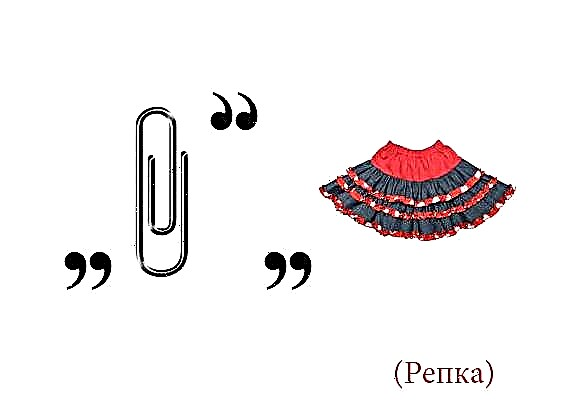Breast milk is by nature designed to feed a newborn baby. Due to some circumstances, sometimes mothers transfer their babies to artificial formulas for newborns.

Artificial feeding
Reasons for switching to artificial nutrition
- Not enough or absolutely no breast milk.
- Forced separation from the mother (after a difficult birth, she needs treatment and rehabilitation, the removal of the child from the mother, and more).
- The mother is taking medications that can pass into milk and are contraindicated in the baby.
- The presence of metabolic problems in the crumbs (phenylketonuria, galactosemia, cealkia and others).
- The mother is sick with HIV, hepatitis C and B, purulent mastitis, syphilis, and suffers from mental disorders.
- The mother uses drugs or alcohol.
- The mother deliberately refuses to breastfeed for fear that the breast will lose its shape and tone.
Important! According to pediatricians, no artificial nutrition can replace breast milk.
The decision to switch to artificial feeding is made only after consultation with a doctor who will recommend the most appropriate option for infant formula.
The positive aspects of artificial nutrition
The use of artificial nutrition for children has a number of advantages:
- If the baby has an allergic reaction to the mixture, the mother simply replaces it with another. Breastfeeding in this case forces you to reconsider the mother's nutrition or completely cancel breastfeeding.
- Breastfeeding "ties" the mother to the baby. Formula feeding is available to any adult in the family, which is important for a working or school mother.
- Artificial nutrition takes longer to digest in the body of the crumbs, so parents reduce the number of daily meals.
- The amount of formula eaten is always precisely controlled. This is not possible with breastfeeding.

Feeding with infant formula
Negative sides of artificial nutrition
Despite some advantages, artificial nutrition has a number of negative qualities:
- Baby food bottles are thoroughly disinfected.
- Dairy substitutes do not contain immune-boosting antibodies like breast milk. Therefore, artificial children are more likely to be negatively affected by various infections, and this tendency is manifested not only in infancy.
- The use of infant formula sometimes causes colic in the baby. When using a poor quality nipple, the infant will swallow air, causing it to regurgitate.
- Artificial nutrition is more likely than breast milk to cause allergic reactions.
- Sometimes parents change several types of infant formula before deciding which formula is best for their newborn.
- Any trip with a baby requires additional luggage, which includes baby bottles, nipples, packs of formula, special thermoses and so on. While mother's breast milk is always with her.
- High-quality infant formula is not cheap, so artificial feeding causes significant damage to the family budget.
- It takes time to prepare the mixture, which brings certain inconveniences, especially at night.
Thus, each parent carefully considers the positive and negative aspects of artificial feeding and consults with the pediatrician before deciding on infant formula.
Criteria for choosing baby food
First of all, pay attention:
- The integrity of the packaging. Do not acquire the mixture if the packaging is deformed or damaged and has a frayed appearance. This indicates a violation of the storage and transportation conditions.
- On the date of manufacture and terms of use. Usually, they do not purchase mixtures with a limited duration, in order to avoid the use of poor-quality nutrition for the crumbs.
- Age restrictions. A mixture is selected that matches the age of the baby. Never use formula for older children to feed newborn babies.
- For the presence of additional food additives that improve the baby's digestion and normalize the functioning of the whole body.
- For the hypoallergenicity of the mixture. Artificial feeding begins with those that do not contain allergens.
- For the presence of preservatives and chemicals contraindicated in infants.

Large selection of baby food
Essential ingredients for infant formula
Baby food for newborns from different manufacturers differs in composition, but has some mandatory components:
- Whey protein is included in the mixture with the numbers 0 and 1, food for babies over 6 months includes casein. They are the main nutritional base for the body of the crumbs, and also act as an accelerator of the biochemical process in the body.
- For the proper development of the nervous system and vision, the child's body needs the sulfur-containing amino acid taurine.
- With the help of lactulose, iron and calcium are well absorbed in the baby's body, the digestion process improves, and a beneficial microflora develops in the digestive tract.
- Dextinmaltose contributes to an increase in the number of bifidobacteria in the intestine, the presence of fatty linoleic acid in the mixture provides nutrients to the brain and retina.
- The newest infant formula includes probiotics (a kind of microorganisms) and prebiotic fibers, the cooperation of which normalizes beneficial microflora in the intestines and strengthens the baby's immune system.
- The presence of starch and gum in the mixture is necessary to thicken the contents in the stomach and prevent regurgitation.
- Milk mixtures are enriched with minerals of manganese, selenium, zinc, iodine, copper.
Compared to the past, when powdered cow's milk was used for the production of artificial baby food, now infant formula is close in composition to breast milk. Supplements are included in the diet to meet the needs of children of different ages. Therefore, the mixtures are not universal, but are divided by age categories:
- premature and sick infants are intended for mixtures indicated by the number 0;
- mixtures with the number 1 are intended for babies from birth to 6 months;
- the number 2 marks food from 6 months to 1 year;
- food with the number 3 is intended for children from 1 year;
- the number 4 denotes food for children from 18 months.

Baby food is selected according to the age of the baby
In addition to age differences, milk formulas are differentiated according to the degree of adaptation to breast milk:
- highly adapted baby food in composition is as similar as possible to human milk;
- medium adapted food for children is close in composition to breast milk, contains cow protein;
- partially adapted baby food very remotely resembles breast milk, does not include useful additives;
- unadapted baby food - these are formulas based on cow's milk, not used for infants under 1 year old.
Important! For babies under 6 months, the most adapted milk formulas are recommended.
Signs of an improperly selected mixture
How to choose the right mixture for a newborn is sometimes taken long and painstakingly. A well-chosen artificial nutrition has a good effect on the full growth and development of the baby. It often happens that the formula recommended by the pediatrician is not suitable for a particular child. From the moment the breast milk substitute was introduced, adults closely monitor the baby's condition for 3 days. This is enough time to understand if this mixture is suitable for the child.

Allergy in a baby
Signs by which parents determine that infant formula is not suitable for babies:
- An allergic reaction manifests itself in the form of itching, rashes, redness, peeling on the skin. Sometimes there are allergic rhinitis, atopic dermatitis, anxiety, moodiness.
- There are changes in the work of the digestive tract. Normally, with artificial feeding, the feces look pasty with small crumbs, have a yellow-white color and a characteristic putrid smell. If the digestive tract is disturbed, frequent regurgitation, constipation or diarrhea begins.
- If the parents feed the baby according to the rules (they give a bottle correctly, after eating they hold the baby in a "column", put it on the stomach, do a massage), but the newborn is tormented by gas and colic.
- There is a problem with weight gain. If the mixture is not suitable for the baby, then he will not gain weight.
- Sleep disturbances, overexcitement, tearfulness or passive behavior also say that the mixture is not suitable for this baby.
Important! If the listed symptoms do not stop, on the contrary, they are aggravated, then this milk formula is contraindicated for the baby.
The choice of formula for artificial feeding
Parents choose which baby food is best for newborns. Pediatricians recommend the use of highly adapted milk formulas based on demineralized milk whey. In such a diet, albumin and globulins are harmoniously combined, fats, carbohydrates and vitamins do not exceed the norm in terms of quantity.

Baby food samples
Casein, which is part of less adapted mixtures, is poorly absorbed in the child's body and is not suitable for babies up to 6 months of age.
By appointment, baby food is divided into:
- Basic. These mixtures differ from each other in the base protein (this can be casein or whey protein) and the dietary supplements included.
- Treatment-and-prophylactic.
- Medicinal.
Important! A well-known doctor, E. Komarovsky, recommends a normal diet for healthy children. Specialized mixtures are used only in case of real health problems.
Artificial nutrition meets the needs of the child, if he is steadily gaining weight, is active during the day, sleeps well at night, has normal stools and clear skin.
Choosing a formula for mixed feeding
Which formula is the best for newborns with mixed feeding, the doctor and the parents of each child decide. It must include iodine, taurine, nucleotides, polyunsaturated fatty acids, vitamins, minerals, pre, and probiotics. There are no palm oil, significant amounts of sugar and starch among the ingredients in quality infant formula. With the help of artificial nutrition, some of the health problems of the baby are solved:
- with constipation, babies acquire fermented milk mixtures;
- for acute intestinal infections, substitutes with a low amount of lactose are chosen;
- with lactose intolerance, lactose-free mixtures are suitable;
- for regurgitation, antireflux mixtures with increased viscosity are used;
- when diagnosing allergies, a hypoallergenic mixture marked "GA" and "HA" is selected based on hydrolyzed proteins.
Important! Parents do not select therapeutic food on their own, they first consult with a pediatrician.
What formula to choose for newborns with mixed feeding, the top list of the best infant formula will tell you:
- Friso (Friso) mixture for complementary foods for premature babies and babies with low weight. Enriched with iodine and amino acids, which have a beneficial effect on the formation of the central nervous system and the digestive system. The downside is that it contains palm oil.
- Nutrilak (Nutrilak). Due to the increased amount of nutrients, it strengthens the immune system, promotes proper digestion. The main plus is that it does not contain palm and rapeseed oils.
- Similac is a highly adapted blend that relieves colic and constipation symptoms, does not contain palm oil.
- Nannie is created on the basis of goat's milk, intended for children with cow's milk intolerance. It is rarely an allergen in infants.
- Baby is a domestic mixture with a very affordable price. It contains prebiotics, iodine, fatty acids, palm oil, does not contain sugar.
Manufacturers offer a choice of baby food for newborns, and parents always consult with a pediatrician which is best before starting to feed the baby.
Rating of formulas for newborns
Many parents choose the best infant formula by reviewing the ratings.
According to recent surveys, the best highly adapted infant formulas are:
- Nutrilon. Highly adapted nutrition for babies contains nucleotides and peptides that strengthen the digestive system and the immune system of the baby. According to the program "Test Purchase", this is the best food.
- NAN. A highly adapted blend with essential amino acids, vitamins and minerals for the development of a child's brain.
- Unsigned. Highly adapted hypoallergenic blend with optimal composition without palm oil. Recommended for use from the first days of life.
- Similac. Highly adapted palm oil free blend, contains lutein, bifidobacteria and other elements that are beneficial for premature babies.

Best baby food
The best baby food based on goat milk:
- Cabrita. Contains elements for softening stools, porridge is rich in prebiotics and bifidobacteria. Recommended for healthy children.
- MD Mil Goat 2. Contains prebiotics, omega 3 and 6 polyunsaturated fatty acids, an optimal ratio of whey protein and casein protein.
Thus, there are a large number of breast milk substitutes on the baby food market. Parents independently choose which of the presented assortment is best suited for their crumbs.



